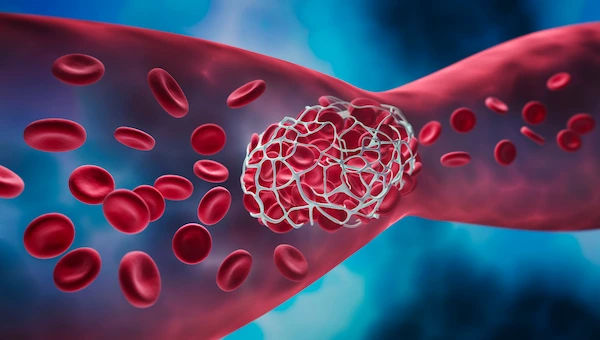Ketones in Urine: Causes, Symptoms, and When to Worry
Discover the causes, symptoms, and risks of ketones in urine. Learn the difference between nutritional ketosis and diabetic ketoacidosis (DKA), how to test accurately, and when to seek medical help.

Written by Dr. D Bhanu Prakash
Reviewed by Dr. Rohinipriyanka Pondugula MBBS
Last updated on 13th Jan, 2026

Introduction
Have you ever used a urine test strip and been surprised to see it change color, indicating the presence of ketones? You're not alone. Finding ketones in urine can be a common occurrence, ranging from a completely normal metabolic state to a sign of a serious medical emergency. Understanding the difference is crucial for your health. This comprehensive guide will demystify ketones, explaining why they appear in your urine, what the different levels mean, and most importantly, when it's a cause for concern and when it's part of a planned dietary change. We'll walk you through the causes, from the popular ketogenic diet to the dangers of diabetic ketoacidosis, help you interpret test results, and outline the clear steps you should take based on your situation.
What Are Ketones and Ketosis?
The Body's Normal Energy Process
Typically, your body's primary and preferred source of energy is glucose, which comes from carbohydrates you eat. When you consume carbs, your body breaks them down into glucose, which is then transported around the body by the hormone insulin to be used for immediate energy or stored for later use.
What is Ketosis?
When your body doesn't have enough glucose from carbohydrates for energy, it needs to find an alternative fuel source. It turns to burning stored fat. The liver breaks down this fat into molecules called ketones (or ketone bodies). These ketones are then released into the bloodstream and used by your muscles, heart, and brain as a efficient energy source. This metabolic state of running on ketones instead of glucose is called ketosis.
What Does It Mean to Have Ketones in Your Urine?
The Medical Term: Ketonuria
Your kidneys filter your blood. When the level of ketones in your blood becomes high enough that the kidneys can't reabsorb them all, the excess ketones spill over into your urine. The medical term for this presence of ketones in urine is ketonuria. It is a key indicator that your body is primarily burning fat for fuel. A urine test is a simple and non-invasive way to detect this.
Common Causes of Ketones in Urine
Diabetic Ketoacidosis (DKA): A Medical Emergency
For individuals with diabetes, particularly type 1 diabetes, high ketone levels are extremely dangerous. Diabetic Ketoacidosis (DKA) occurs when there is a severe lack of insulin. Without insulin, glucose can't enter cells and builds up in the blood (hyperglycemia). The body, starved for energy, rapidly breaks down fat for fuel, causing a toxic buildup of ketones that acidifies the blood. DKA is a life-threatening condition that requires immediate medical attention.
The Ketogenic Diet and Nutritional Ketosis
This is an intentional and controlled cause of ketones in urine. The ketogenic (keto) diet is a very low-carb, high-fat diet designed to force the body into a state of nutritional ketosis. People on this diet aim to produce ketones, and finding them in their urine is often a sign that they are "in ketosis" and their diet is working as planned.
Starvation and Fasting
During prolonged fasting, starvation, or even missing meals, the body's carbohydrate stores (glycogen) become depleted. To survive, the body begins breaking down fat stores, leading to ketone production and subsequent ketonuria. This can also happen during periods of intense illness where someone cannot keep food down.
Other Potential Causes
Other reasons for ketones in urine can include:
Pregnancy: Especially during morning sickness or hyperemesis gravidarum, which involves severe vomiting and inability to eat.
Eating Disorders: Such as anorexia nervosa.
Chronic Alcoholism: Can lead to alcoholic ketoacidosis.
High-Protein, Very Low-Carb Diets: Similar to the keto diet.
Recognizing the Symptoms
Symptoms of Nutritional Ketosis
When ketosis is achieved through diet, people may experience:
Weight loss
Reduced appetite
Bad breath (often described as fruity or metallic, caused by acetone)
Short-term "keto flu" (fatigue, headache, irritability)
Warning Signs of Diabetic Ketoacidosis (DKA)
If you have diabetes and experience the following symptoms of ketones building to dangerous levels, seek emergency care immediately:
Extremely high blood sugar levels
Frequent urination
Intense thirst and dry mouth
Nausea and vomiting
Abdominal pain
Confusion or difficulty concentrating
Shortness of breath
A fruity-smelling breath
How to Test for Ketones in Urine
Over-the-Counter Urine Ketone Test Strips
The most common and accessible method for testing ketones in urine is using urine ketone test strips. These are small plastic strips with a chemically treated pad on the end. They are readily available at pharmacies without a prescription.
How to Use Ketone Strips Accurately
1. Wash your hands.
2. Collect a fresh urine sample in a clean container.
3. Dip the test pad end of the strip into the sample for the time specified in the instructions (usually 1-2 seconds).
4. Remove the strip and gently tap the edge against the container to remove excess urine.
5. Wait exactly the time specified (usually 15-60 seconds) and compare the color of the pad to the color chart on the bottle.
Other Testing Methods: Blood and Breath
Blood Ketone Meters: These provide a more precise and current measurement of ketone levels (specifically beta-hydroxybutyrate) in your blood, not your urine. They are more expensive but are the preferred method for many managing diabetes or closely monitoring nutritional ketosis.
Breath Ketone Meters: These measure acetone in your breath. They are non-invasive and reusable but can be less consistent than blood meters.
Interpreting Your Urine Ketone Test Results
Understanding the Color Chart
Urine strip results are typically reported as:
Negative: No ketones detected.
Trace: A small amount of ketones is present.
Small: Indicates a low level of ketonuria.
Moderate: A significant level of ketones.
Large: A high concentration of ketones.
What to Do Based on Your Result
For Non-Diabetics on a Keto Diet: A trace to moderate reading is often the goal. A large reading might indicate you need to drink more water, as dehydration can concentrate urine and ketone readings.
For Diabetics: Any positive reading is a cause for caution. A trace or small reading warrants a call to your doctor for advice. A moderate or large reading, especially if accompanied by high blood sugar or symptoms, is a medical emergency. If you have diabetes and your test shows moderate to large ketones, consult a doctor online immediately with Apollo24|7 for emergency guidance or to go to the nearest hospital.
Treatment and Management Strategies
Managing Ketones from Diet or Fasting
If your ketones in urine are from an intended low-carb diet, "treatment" isn't necessary. However, to manage side effects:
Stay exceptionally well-hydrated to flush excess ketones and prevent dehydration.
Ensure you are eating enough electrolytes (sodium, potassium, magnesium).
If you feel unwell, consider whether your diet is too restrictive.
Emergency Treatment for DKA
Treatment for DKA must happen in a hospital and involves:
Intravenous (IV) fluids to rehydrate.
IV insulin to lower blood sugar and stop ketone production.
Electrolyte replacement to correct imbalances.
Prevention Tips
For Diabetics: Carefully manage your blood sugar levels, take insulin or medications as prescribed, and have a sick-day plan. Test for ketones in urine during illness, stress, or when blood sugar is consistently high.
For Dieters: Transition into a low-carb diet gradually, stay hydrated, and listen to your body. Apollo24|7 offers a convenient home collection for tests like HbA1c and metabolic panels if you want to monitor your health markers professionally while on a special diet.
Conclusion
Finding ketones in your urine is a powerful signal from your body, but it's a signal that requires context. For the health-conscious individual following a keto lifestyle, it's a sign of metabolic adaptation. For a person with diabetes, it can be the first warning of a potentially life-threatening crisis. The key is to understand why it might be happening to you. Listen to your body's accompanying symptoms, use at-home test strips wisely, and never hesitate to seek professional guidance when results are unclear or concerning. Whether you're managing a chronic condition or experimenting with your nutrition, knowledge is your best tool. If you are unsure about your test results or symptoms, booking a consultation with a doctor on Apollo24|7 can provide you with the clarity and personalized advice you need to stay safe and healthy.
FAQs About Ketones in Urine
1. Can you have ketones in urine and not be diabetic?
Yes, absolutely. Non-diabetics can have ketones in urine from fasting, following a very low-carb ketogenic diet, prolonged exercise, pregnancy, or illness that prevents eating.
2. What level of ketones in urine is dangerous?
For individuals with diabetes, any positive reading can be a concern. A "moderate" or "large" reading is considered dangerous, especially when paired with high blood sugar levels, as it suggests impending or active diabetic ketoacidosis (DKA).
3. How can I flush ketones out of my urine?
If ketones are from dieting, simply drinking more water will help dilute and flush them out. However, if ketones are due to high blood sugar, drinking water will not solve the underlying problem, and medical intervention with insulin is required.
4. Why do I have ketones in my urine while pregnant?
It's common, especially in the first trimester, due to morning sickness and a reduced appetite. However, if it's accompanied by high blood sugar (gestational diabetes) or severe vomiting, it's important to discuss it with your obstetrician.
5. Are urine ketone test strips accurate?
They are accurate for detecting the presence of ketones but are not as precise as blood tests. They also measure ketones that were produced hours ago, not your current level. They can be affected by hydration levels.
Health topic carousel:
Doctor's speciality: General Physician
Text: Consult a Specialist for the best advice




